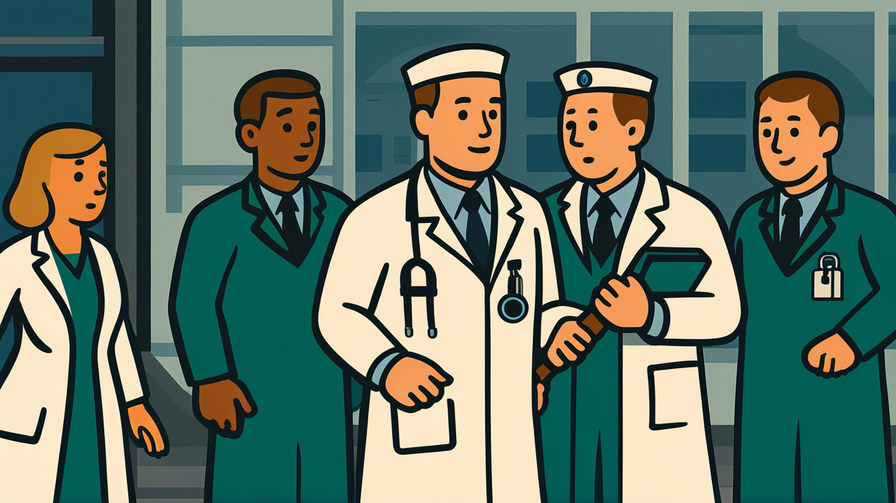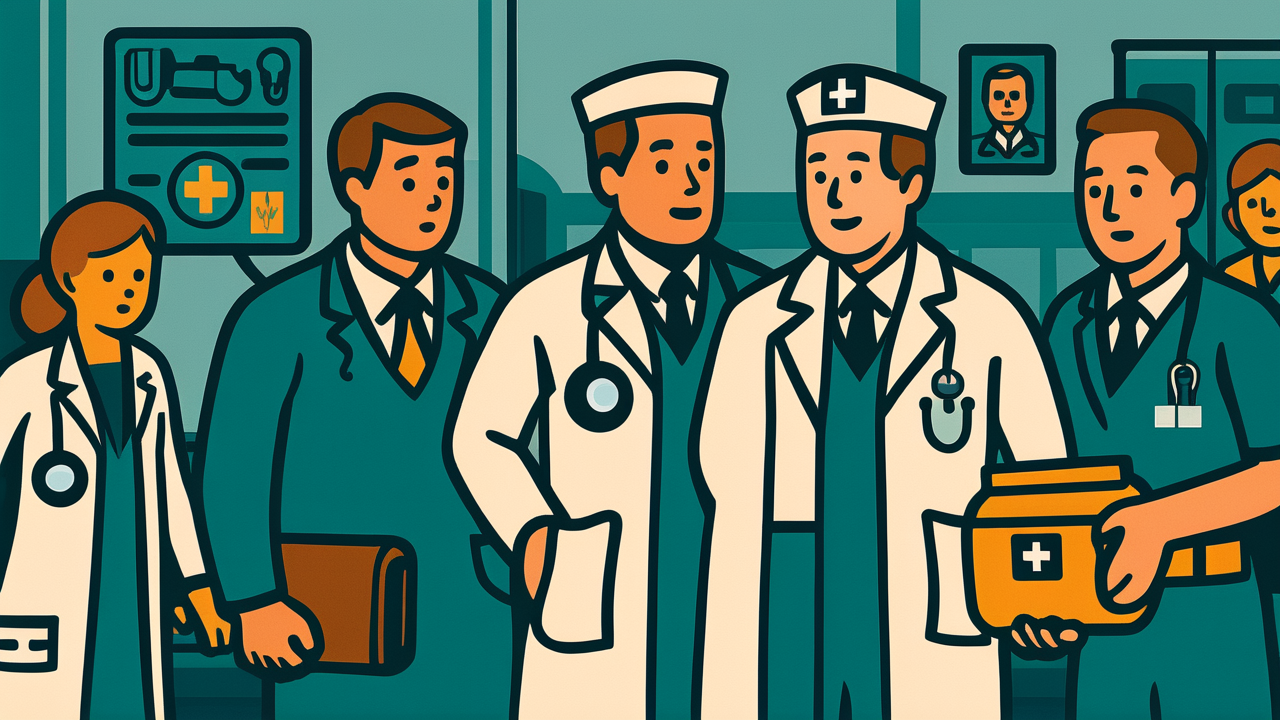[Disclaimer] This article is reconstructed based on information from external sources. Please verify the original source before referring to this content.
News Summary
The following content was published online. A translated summary is presented below. See the source for details.
Ethiopian authorities have arrested dozens of doctors in recent weeks, raising alarm among human rights organizations and medical professionals worldwide. The arrests appear to be connected to doctors’ demands for better working conditions, increased pay, and improved healthcare resources in government hospitals. Many of the detained doctors had been vocal about the deteriorating state of Ethiopia’s healthcare system, which has been strained by years of internal conflict, economic challenges, and the COVID-19 pandemic aftermath. Some arrested doctors were reportedly involved in organizing peaceful protests or signing petitions calling for healthcare reforms. The Ethiopian Medical Association has expressed deep concern about these arrests, stating that they will further worsen the country’s already critical shortage of medical professionals. International medical organizations and human rights groups have called for the immediate release of the detained healthcare workers, arguing that arresting doctors during a healthcare crisis endangers public health and violates basic human rights.
Source: globalvoices
Our Commentary
Background and Context

Ethiopia, Africa’s second-most populous country with over 120 million people, has faced significant healthcare challenges in recent years. The country has only about 0.1 doctors per 1,000 people, compared to 2.6 in the United States. Years of civil conflict, particularly in the Tigray region from 2020-2022, devastated healthcare infrastructure and led many medical professionals to flee the country. Ethiopian doctors typically earn between $200-$500 per month, far below what’s needed to sustain a middle-class lifestyle in urban areas. Many work in hospitals lacking basic supplies, with frequent power outages and insufficient medical equipment.
Expert Analysis
Human rights experts view these arrests as part of a broader pattern of suppressing dissent in Ethiopia. When professionals like doctors speak out about systemic problems, authoritarian governments often see them as threats because they have credibility and public trust. Medical ethics specialists argue that doctors have a professional duty to advocate for conditions that allow them to provide adequate patient care. The arrests create a chilling effect, discouraging other healthcare workers from speaking out about problems that directly impact patient safety. International health organizations worry this will accelerate Ethiopia’s “brain drain,” with more doctors seeking opportunities abroad.
Additional Data and Fact Reinforcement
Ethiopia’s healthcare crisis runs deep: the country has only about 12,000 doctors for its 120 million population, when the World Health Organization recommends at least 120,000. About 70% of Ethiopian doctors work in just two cities – Addis Ababa and Dire Dawa – leaving rural areas severely underserved. The average Ethiopian doctor sees 100+ patients daily, compared to 20-30 in developed countries. Medical schools graduate only about 2,000 doctors annually, but an estimated 500-700 emigrate each year seeking better opportunities. Government health spending is just $24 per person annually, compared to the $100 minimum recommended by WHO for basic health services.
Related News
This situation mirrors similar crackdowns on professionals in other countries experiencing political tensions. In Sudan, doctors leading pro-democracy protests faced arrests and violence. Turkey detained thousands of healthcare workers who criticized government COVID-19 policies. The Ethiopian arrests also occur against a backdrop of broader civil society restrictions, with journalists, activists, and opposition politicians facing similar treatment. The African Union has been notably silent on these arrests, despite its stated commitment to human rights. Meanwhile, the United Nations has added Ethiopia to its list of countries of concern for deteriorating human rights conditions.
Summary

The mass arrests of Ethiopian doctors represent a dangerous intersection of healthcare crisis and political repression. By silencing medical professionals who advocate for better healthcare conditions, the government risks deepening a health crisis that already threatens millions of Ethiopians’ lives. The international community faces the challenge of pressuring for the doctors’ release while supporting Ethiopia’s struggling healthcare system.
Public Reaction
Ethiopian social media has erupted with support for the arrested doctors, with hashtags like #FreeEthiopianDoctors trending despite internet restrictions. Many Ethiopians share personal stories of inadequate medical care, linking it to the poor conditions doctors face. Medical students express fear and uncertainty about their futures, with some reconsidering their career choices. The Ethiopian diaspora has organized protests outside Ethiopian embassies in Washington, London, and Brussels. Some government supporters argue the doctors were “playing politics” instead of serving patients, but these voices are outnumbered by those demanding better healthcare and freedom for the detained medical professionals.
Frequently Asked Questions
Q: Why would a government arrest doctors who are already in short supply?
A: Governments sometimes prioritize maintaining power over practical needs. They may view outspoken professionals as threats to their authority, even if silencing them worsens public services.
Q: Can international pressure help free the doctors?
A: Sometimes. International attention, especially from organizations that provide aid or trade with Ethiopia, can influence government decisions. However, change often takes time and sustained pressure.
Q: How does Ethiopia’s doctor shortage compare to other African countries?
A: Ethiopia’s ratio of 0.1 doctors per 1,000 people is among Africa’s lowest. For comparison, South Africa has 0.9, Kenya has 0.2, and Rwanda has 0.1. The WHO recommends at least 1.0 for basic health coverage.


